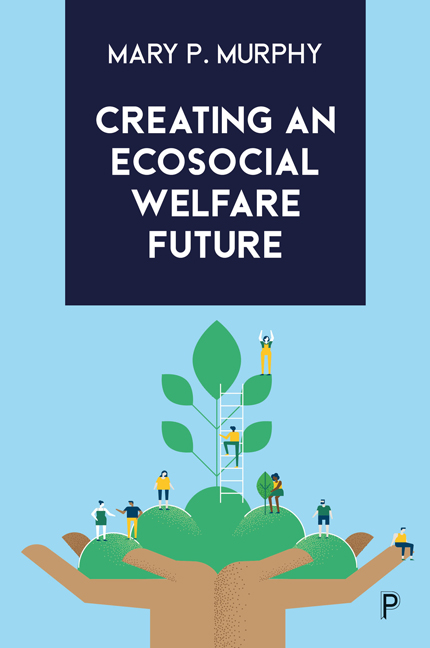Book contents
- Frontmatter
- Dedication
- Contents
- List of figures and tables
- Acknowledgements
- Introduction: The case for a welfare imagination
- PART I From problems to solutions: a post-growth ecosocial political economy
- PART II Building an ecosocial imaginary
- PART III An ecosocial political imaginary
- Conclusion: The case for systemic transformation
- Appendix: Ireland
- Notes
- References
- Index
PART III - An ecosocial political imaginary
Published online by Cambridge University Press: 20 January 2024
- Frontmatter
- Dedication
- Contents
- List of figures and tables
- Acknowledgements
- Introduction: The case for a welfare imagination
- PART I From problems to solutions: a post-growth ecosocial political economy
- PART II Building an ecosocial imaginary
- PART III An ecosocial political imaginary
- Conclusion: The case for systemic transformation
- Appendix: Ireland
- Notes
- References
- Index
Summary
So far, a compelling argument has been made for system change to address the contemporary failure of our capitalist political economy and welfare system to promote environmental sustainability, societal wellbeing and equality. The case for an ecosocial state is manifold not only from the perspective of climate change, but also from the perspective of gender and other inequalities, socio-economic justice, health and wellbeing, social reproduction, democratic participation as well as sustainable ecologies. Part II outlined a case for ecosocial policy as an underlying feature of wider systemic change and explored the values needed to underpin enabling institutions that could enhance reciprocity and interdependence. It offered two anchoring institutions, Universal Basic Services and Participation Income, as core features of an ecosocial state.
Part III will discuss the democratic challenges of social transformation and mobilisation, the importance of imagination, ideas and language, and the significance of new forms of power, all in the context of what strategies might achieve the scale of transformation required for an ecosocial state. Theories of change and transformation translate into strategies for action. Our imagination and ideas influence what we think is possible and how we approach ‘making it happen’. Democratic engagement of active citizens requires collective mobilisation across different interests and joining the dots across relevant political civil society campaigns and programmes. Ever mindful of the agencystructure dichotomy, agency needs to be of sufficient scale to thwart the obvious power of vested interests who gain from and so defend the status quo. This requires transforming political opportunity structures in democratic institutions and policy processes into a high-energy democracy. Each chapter concludes by discussing lessons from recent episodes of social transformation in Ireland.
- Type
- Chapter
- Information
- Creating an Ecosocial Welfare Future , pp. 109 - 110Publisher: Bristol University PressPrint publication year: 2023



